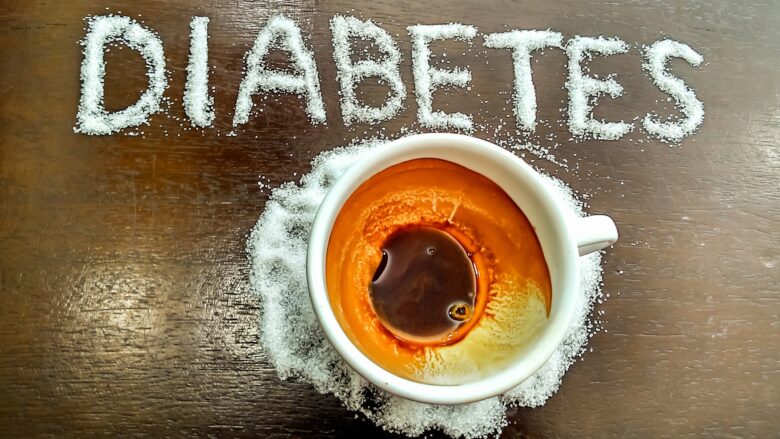Coffee is one of the most famous drinks in the world. People love the rich taste and stimulating effect. However, people with diabetes often do not know whether drinking coffee is safe or what consequences it has for their health. This article discusses the link between coffee and diabetes, including the potential benefits and harms, so you can make an informed decision about how much coffee to drink.
Diabetes: What Is It?
People with diabetes have a long-term disease that changes the way their bodies use glucose, the sugar that provides them with energy. Type 1 and type 2 diabetes are the two main types. Immune system attacks and kills insulin-producing cells in the pancreas of people with type 1 diabetes. This means that the body cannot produce enough insulin. In type 2 diabetes, the body does not respond to insulin or does not produce enough insulin to maintain average blood sugar levels.
Coffee and Type 2 Diabetes:
Several studies have shown that drinking coffee can lower the risk of developing type 2 diabetes. A study in the journal Diabetes Care looked at multiple studies and found that drinking an extra cup of coffee per day was associated with a 7 percent lower risk of type 2 diabetes. Researchers believe that antioxidants and other compounds in coffee that improve insulin sensitivity can help improve diabetes and reduce inflammation, two important factors in the development of type 2 diabetes. The exact reason for this link is not entirely clear.
Coffee and Blood Sugar Levels:
One of the main things people with diabetes worry about is how coffee affects their blood sugar levels. Caffeine is the main stimulant in coffee and can temporarily increase blood sugar levels by speeding up the flow of adrenaline. However, this effect is usually mild and short-lived, and regular coffee drinkers can get used to it. Some research also suggests that coffee may make it more difficult for some people, especially those at risk for diabetes, to process glucose. To stay healthy, people with diabetes need to carefully monitor their blood sugar levels and understand how coffee affects them.
Coffee and Insulin Sensitivity:
Insulin sensitivity is a measure of how well cells in the body respond to insulin and remove glucose from the blood. Researchers have found that drinking coffee makes insulin work better, which could be beneficial for people with diabetes. A study in the American Journal of Clinical Nutrition found that drinking coffee and other caffeinated beverages is associated with better insulin sensitivity in overweight people.
Possible Adverse Effects of Coffee on Diabetes:
Most people with diabetes can drink coffee in moderation without any problems, but there are a few things you should know about them. People who are sensitive to caffeine may experience palpitations, nervousness and a rapid heartbeat if they drink too much coffee. Additionally, some research suggests that coffee may make pregnant women more susceptible to gestational diabetes. If a pregnant woman with diabetes drinks coffee, she should discuss with her doctor how to stop her coffee habit.
How to Drink Coffee Safely If You Have Diabetes:
People with diabetes who enjoy coffee can follow these tips to ensure safe coffee consumption:
- Always monitor your blood sugar levels, especially after drinking coffee, to see how it affects you.
- Pay attention to portion sizes and don’t add too much sugar or cream to your coffee.
- If you are sensitive to caffeine or if caffeine causes your blood sugar levels to go up and down, you may want to choose decaffeinated coffee.
- You should discuss with your doctor or registered dietitian how coffee fits into your overall diabetes management plan.
Conclusion:
Finally, most people with diabetes can use coffee as part of a healthy diet. Small amounts of coffee may even have benefits for you, such as reducing your risk of type 2 diabetes and making your body more sensitive to insulin. It’s important to monitor your blood sugar levels and understand how coffee affects you personally. If you are concerned about developing diabetes from drinking coffee, contact your doctor or nurse for personalized help.
FAQs:
1. Can coffee help prevent diabetes?
Some research suggests that drinking coffee daily may lower the risk of developing type 2 diabetes. It’s not entirely clear why this happens, but it’s thought that antioxidants and other compounds in coffee may help insulin work better and reduce inflammation, both of which are important in preventing diabetes.
2. What effect does coffee have on blood sugar levels in diabetics?
Caffeine is the main stimulant in coffee and can temporarily increase blood sugar levels by speeding up the flow of adrenaline. However, this effect is usually mild and short-lived, and regular coffee drinkers can get used to it. People with diabetes should always monitor their blood sugar levels, especially after drinking coffee, to understand how caffeine affects them.
3. Are there risks if someone has diabetes and drinks coffee?
Moderate coffee consumption is generally considered safe for most people with diabetes. However, drinking too much coffee can cause palpitations, nervousness, and a rapid heart rate, especially in people who are sensitive to caffeine. Additionally, some research suggests that coffee may make pregnant women more susceptible to gestational diabetes. If a pregnant woman with diabetes drinks coffee, she should discuss with her doctor how to stop her coffee habit.
4. Should diabetics drink decaffeinated coffee instead of regular coffee?
People with diabetes who are sensitive to caffeine or find that caffeine increases their blood sugar levels can drink decaffeinated coffee. But for most people with diabetes, regular, balanced coffee consumption is considered safe. So ultimately, it comes down to personal choice and how caffeine affects you.
5. What is the safest way for diabetics to drink coffee?
If you have diabetes and want to drink coffee safely, you should pay close attention to your blood sugar levels, watch how much you eat, and avoid adding too much sugar or cream to your coffee. Some people may also benefit from drinking decaffeinated coffee or reducing their caffeine intake. If you need personalized help managing diabetes and your coffee intake, it’s always a good idea to talk to your doctor or registered dietitian.


